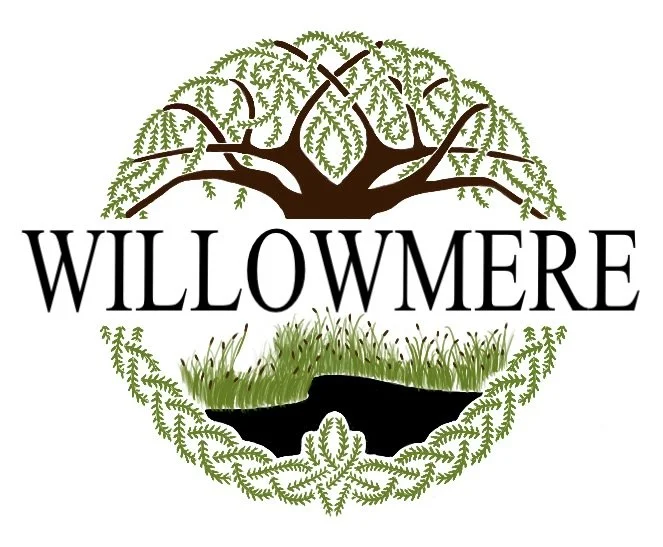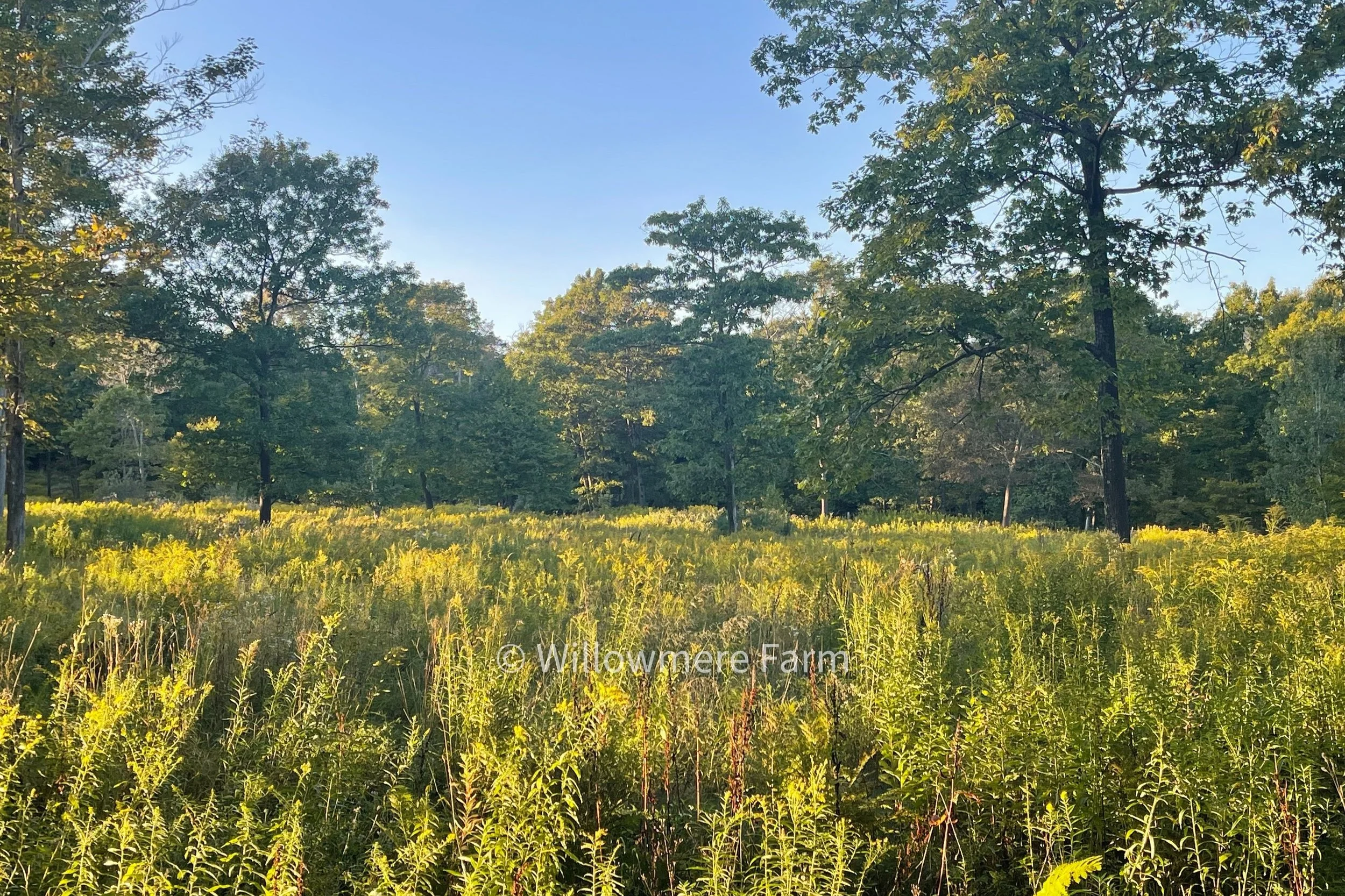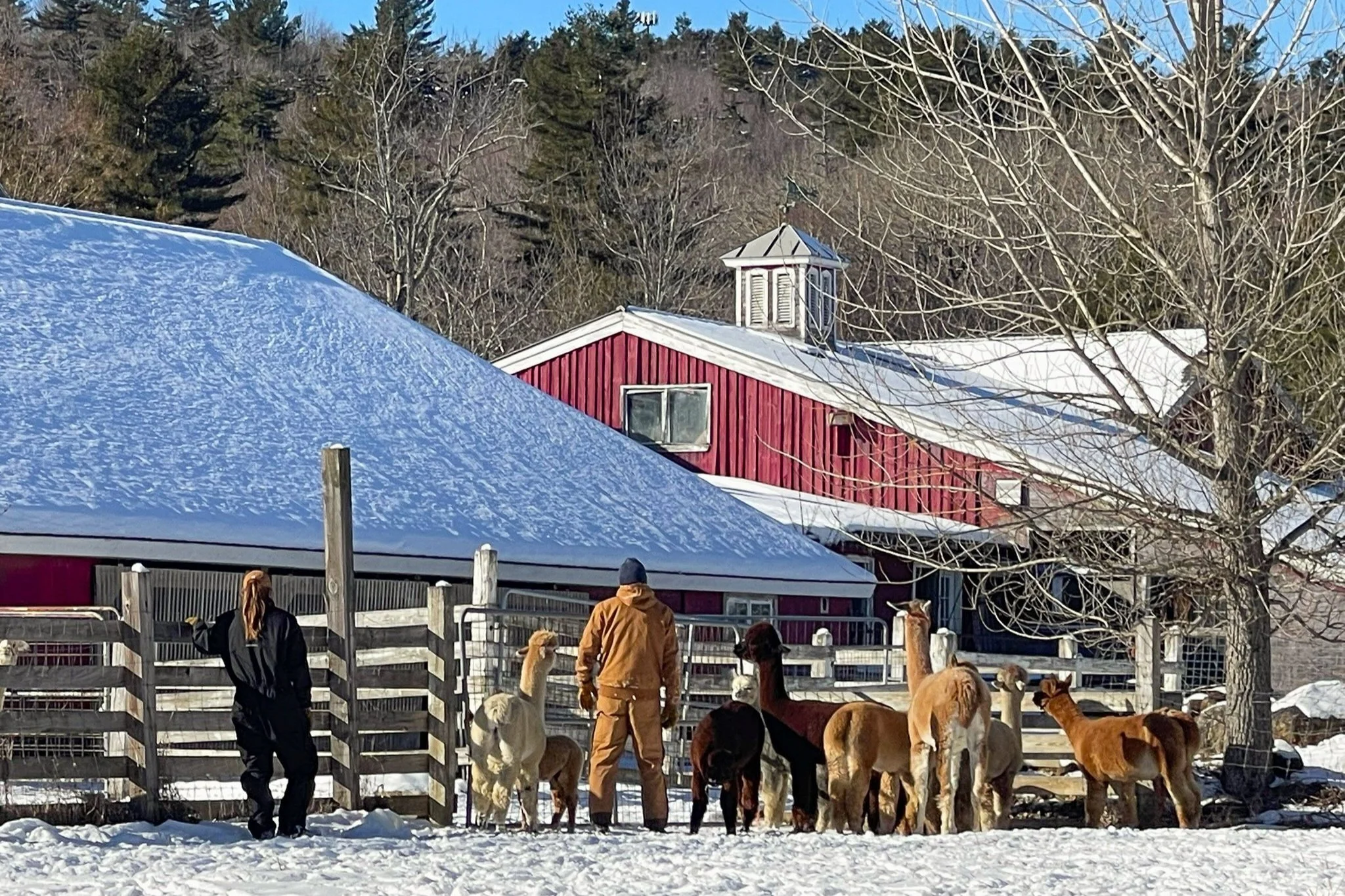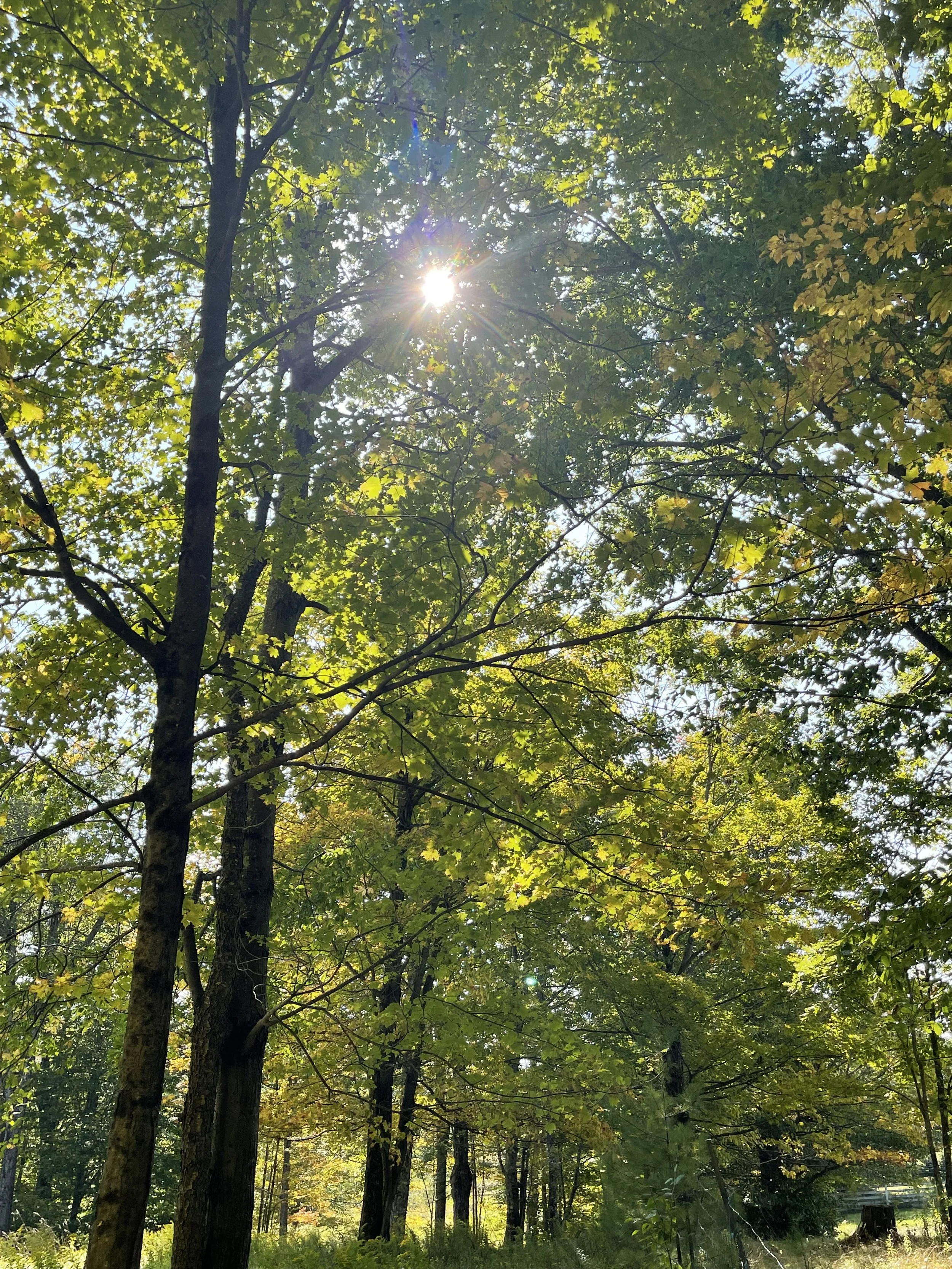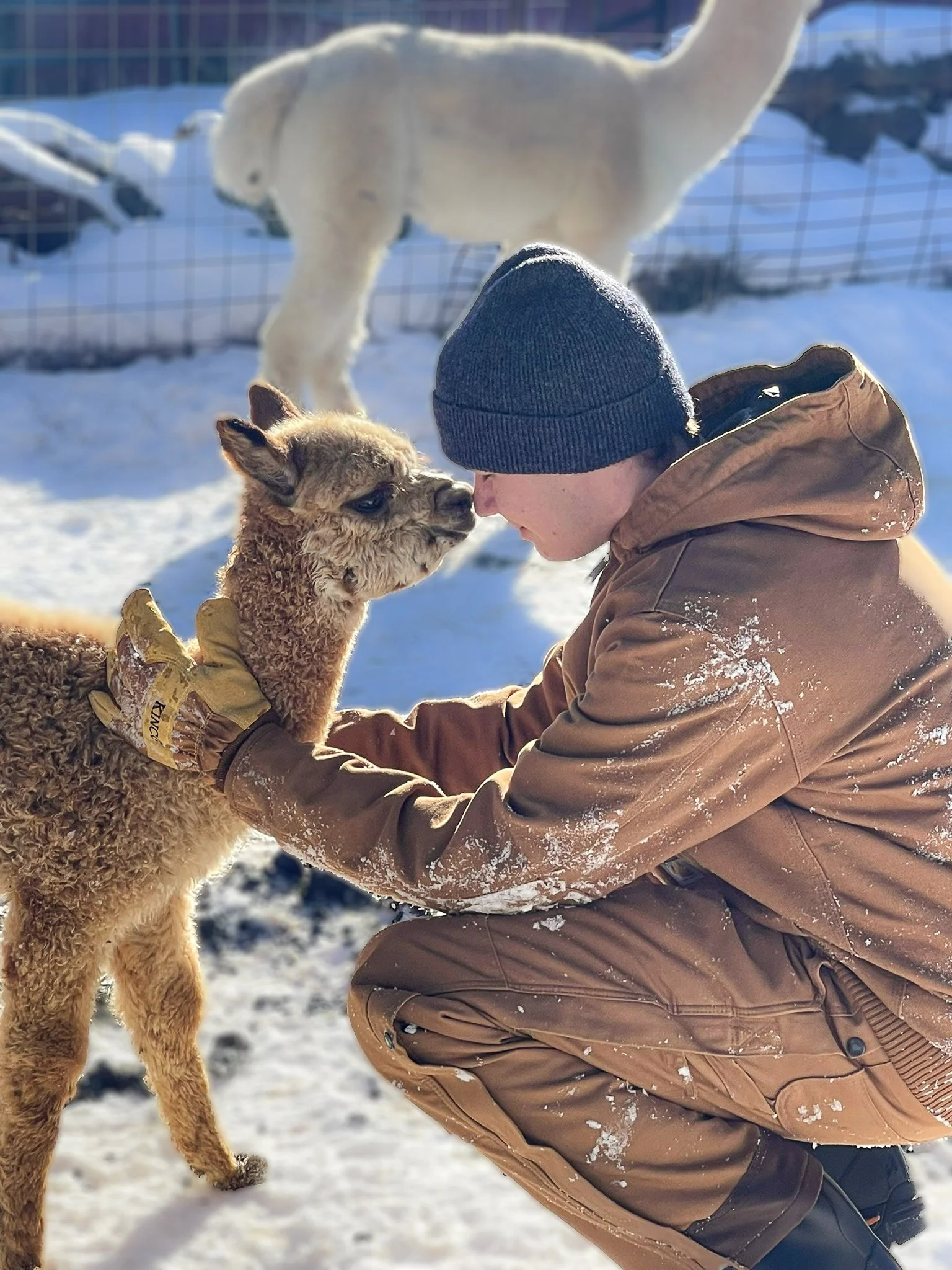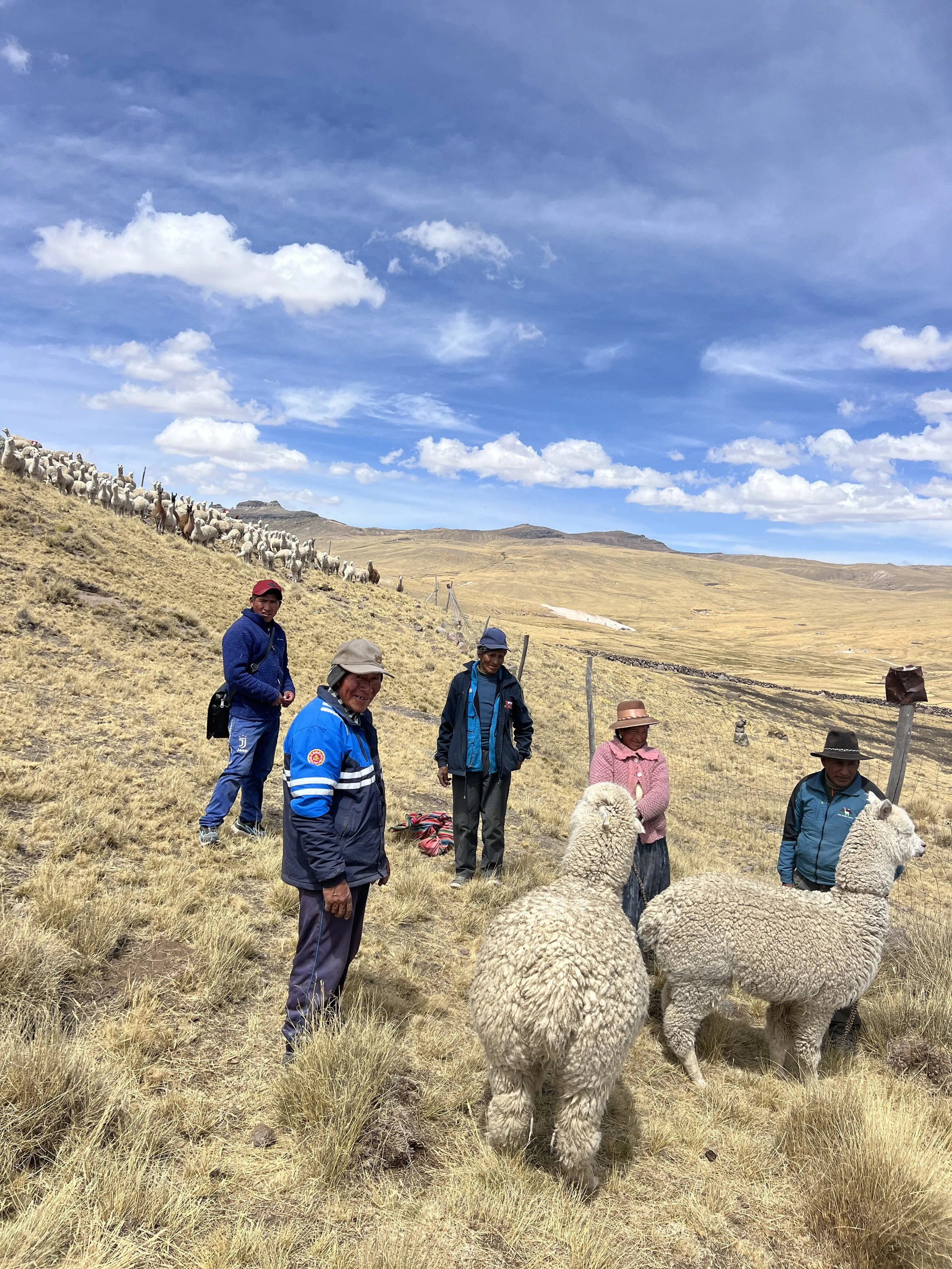Our operation is rooted in an understanding of our interconnected web of relations — to the land, to each other, and to the creatures whose lives are intertwined with our own.
Learn how we’re giving back for the gift of alpacas.

The Land
South of Sunapee, or Senebi, the rock water place, is the headwater forest of the Ashuelot River, known to the Abenaki people who have tended this land for millenia as Nansawôlek — at the hallow place between. In the hilly cradle of this between place, our farm is nestled just above the village of Washington, a town of 27 lakes and ponds and 1,100 year-round and seasonal residents, at the highest elevation of any town center in New Hampshire. On 14 acres of wooded pasture between forest paths, we tend the land, from trees to critters to soil, aspiring to a holistic understanding of ecosystem health and working with our native animal relatives, not against them.
I (Talia) owe an enormous debt of gratitude to the language keepers and teachers of the Abenaki language community, including Jesse Bruchac, Cécile Wawanolet, all the nanawaldagik of the Middlebury Abenaki Language School and their families, and the unbroken chain of language keepers stretching back thousands of years. Their teachings and community have profoundly influenced my understandings of place, land, and relations, and shape how I live each day.
The Farm
As a summer boarding house in the 1800s, the farm once encompassed all of the surrounding landscape. Once a sheep farm, and eventually the former home of Mirage Alpacas through the early aughts, these barns have good bones. We moved to the farm in the summer of 2024 with a small herd of alpacas from our previous location, and immediately dove into the deep end, merging our alpacas with the herds of two retiring alpaca farms, adding sheep, and undertaking the daunting project of resuscitating a farm that’s gone unmanaged for nearly two decades. We’re implementing a system of total rotational grazing, a method of regenerative pasture management that strengthens root systems, builds rich soil, and maximizes the ability of forage to rebound from grazing and support livestock.
The People
Sara Trigg and her two children, Talia and Tobias, run everything on the farm. We are family operated, woman owned, and welcoming of all.

Giving Back
Alpacas were first domesticated from wild vicuñas between 6 and 7 thousand years ago by Indigenous Andean peoples, whose descendants carry on the traditional arts of alpaca farming and fiber processing to this day. Though llamas and alpacas have been exported in small numbers around the world since the 80s and 90s, the Andean high planes remain the epicenter of camelid farming from a technical, artisanal, and cultural perspective. We in North America have much to learn from the Indigenous farmers and artisans of the Andes, and it is essential that we continue to center them in our efforts to better the state of the camelid industry on its economic, veterinary, and breeding quality fronts.
Following fundamental Indigenous traditions of reciprocity, we make an effort to incorporate giving back to the Andean communities to whom the alpaca industry owes everything into the philosophy of our business. Through Peruvian Link, we offer alpaca wearables handmade by rural fiber artisans in Peru, the sales of which directly economically support the makers, their families, and communities.
We have also begun working with the Nuñoa Project, a veterinary and humanitarian project of 20 years that aims to make a positive difference in the lives of herders and townspeople of the southern Peruvian highlands and address immediate needs through on-the-ground humanitarian aid and veterinary support for the animals in the region.
This is undertaken through twice-yearly two-week trips to the Nuñoa district of the remote Peruvian altiplano, where a team of veterinarians, vet students, and volunteers from Peru and North America work together to travel from herd to herd, each numbering in the hundreds, to offer herd health checkups and veterinary resources otherwise unavailable, and to provide any other practical assistance that is needed.
Through this enduring, reciprocal program, the Nuñoa Project and local herders work together to establish self sustaining programs in the areas of support for herding families and veterinary assistance for livestock in the Department of Puño region, and, through this work, exchange information and preserve the rural traditions of herding for future generations in the southern Peruvian highlands. If you would like to help support the important work of the Nuñoa Project, you can find more info and donate on their website.
Talia with the August 2025 Nuñoa Project veterinary team and alpaca herders from the community of Coarita, at the end of a long day of hiking and herd health evaluations at 5,000m (15,000 ft) altitude.

